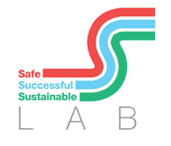Channels
Special Offers & Promotions
From Deep Ocean to Space via Four Continents: 2015 S-Lab Conference Highlights Global Best Practice in Laboratory Design, Operation and Management
The 2015 Supporting World Class Science Conference will be held at the University of Leeds on September 16-17. Highlights include:
 A keynote entitled ‘Is Science Facilities Management Rocket Science? By Kim Toufectis of NASA, one of the world’s largest employers of scientists and engineers, and covering topics such as the impact of changing science requirements on lab design, and successful project management.
A keynote entitled ‘Is Science Facilities Management Rocket Science? By Kim Toufectis of NASA, one of the world’s largest employers of scientists and engineers, and covering topics such as the impact of changing science requirements on lab design, and successful project management.
More than 20 case studies of new and refurbished laboratories from all branches of STEM research and teaching (aquaria and marine science, biology, chemistry, engineering, medicine, neuroscience, marine science, and physics).
Many thematic sessions e.g. on BIM and BMS in labs; biosecurity; chemicals; containment and ventilation; effective briefing; energy efficiency in labs; designing for industry collaboration; equipment costing, operation, purchasing and sharing (e.g. air purifiers, autoclaves, drying cabinets, evaporators, microscopes, and ULT freezers); ELNs and informatics; health and safety improving space utilisation; project management; space utilisation; specialised equipment needs e.g. autoclaves; and whole life costing.
Tours of several Universities of Leeds laboratories.
An S-Lab Awards Dinner on 16 September celebrating the winners from the 40 entries representing 9 countries in 8 categories.
An exhibition of 30-40 stands covering all aspects of laboratory design, operation and management.
Many of the sessions are based on the 40 shortlisted applications to the 2015 S-Lab Awards, and are drawn from Australia, Finland, Netherlands, New Zealand, Switzerland, UK and the USA. S-Lab Director Peter James believes that “The 2015 Conference and Awards show that laboratory design, management and operation are changing in response to new knowledge and technologies, competitive, financial and other pressures, and user expectations. The result is better research and teaching, more cost-effective operation – which can create more resource for actual science - and reduced environmental impact.” Peter is Director of S-Lab, a unique not-for-profit initiative that supports improvement in laboratory design, management and operation by linking key laboratory stakeholders (researchers and teachers, technical staff, estates and facilities, procurement, suppliers and more) through guidance, knowledge exchange and networks.
Bookings are now open for the Conference, the Awards Dinner and the Exhibition.
Media Partners


